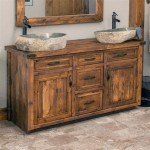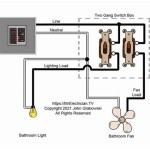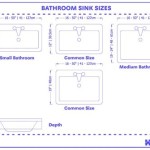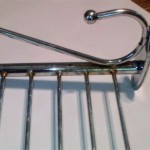How To Remove a Mixer Tap From a Bathroom Sink
Removing a mixer tap can seem daunting, but with the right tools and a methodical approach, it can be a manageable DIY task. This guide provides a step-by-step process for safely and effectively removing a mixer tap from a bathroom sink.
Essential Tools and Materials
Before beginning, gather the necessary tools and materials. Having everything at hand will streamline the process and prevent unnecessary delays.
- Adjustable wrench
- Basin wrench
- Screwdrivers (Phillips and flathead)
- Penetrating oil
- Old towels or rags
- Bucket or container
- Safety glasses
Turning Off the Water Supply
The first and most crucial step is to shut off the water supply to the tap. This prevents flooding and ensures a safe working environment.
- Locate the isolation valves under the sink.
- Turn both the hot and cold water valves clockwise to shut off the water flow.
- Turn on the mixer tap to release any remaining water pressure in the lines.
Disconnecting the Water Supply Lines
With the water supply off, the next step involves disconnecting the flexible hoses that supply water to the tap.
- Place a bucket or container under the sink to catch any residual water.
- Use an adjustable wrench to loosen the nuts connecting the flexible hoses to the tap tails.
- Carefully unscrew the nuts and disconnect the hoses.
Removing the Tap Fixing Nut
The tap is typically secured to the sink by a large nut located underneath. Accessing and removing this nut requires patience and the correct tool.
- Use a basin wrench to loosen and remove the fixing nut. The basin wrench allows access to the nut in the confined space under the sink.
- If the nut is corroded or difficult to turn, apply penetrating oil and allow it to soak for a few minutes before attempting to loosen it again.
Detaching the Mixer Tap
Once the fixing nut is removed, the tap should be free to lift away from the sink.
- Carefully lift the mixer tap upwards and away from the sink.
- There may be some resistance due to sealant or corrosion. Gentle rocking or twisting may help to free the tap.
- Clean the area around the tap hole on the sink, removing any old sealant or debris.
Dealing with Stubborn Taps
Sometimes, taps can be particularly difficult to remove due to corrosion or mineral buildup. If the tap remains stuck after the above steps, consider the following:
- Apply more penetrating oil and allow it to soak for a longer period.
- Use a hairdryer to heat the area around the base of the tap. The heat can help to expand the metal and break down any sealant.
- If these methods fail, consult a qualified plumber for assistance.
Inspecting Components
After removing the tap, it's advisable to inspect the condition of the flexible hoses and other components. This allows for proactive replacement of worn parts and prevents future issues.
- Check the flexible hoses for cracks, kinks, or signs of wear. Replace if necessary.
- Inspect the condition of the O-rings and washers on the tap tails.
Preparing for New Tap Installation
With the old tap removed, the sink is now ready for the installation of a new mixer tap. Ensure the surface is clean and free of any debris before proceeding with the installation.
- Thoroughly clean the tap hole area on the sink.
- Ensure all necessary components for the new tap are available.
- Follow the manufacturer's instructions for the specific installation process of the new mixer tap.

Single Lever Mono Basin Flow Cartridge Maintenance And Replacement

How To Easily Replace Basin Taps Step By

How To Install Basin Taps Replacing A Bathroom Sink Tap

How To Replace A Lever Tap
How To Change Bathroom Taps Everything You Need Know

How To Replace Bathroom Taps Big

Replace Cartridge Single Lever Mixer Tap Diy

Steps For How To Change A Mixer Tap Bathware Direct

Replacing A Cartridge In Mixer Tap The

How To Change A Single Lever Basin Cartridge
Related Posts







